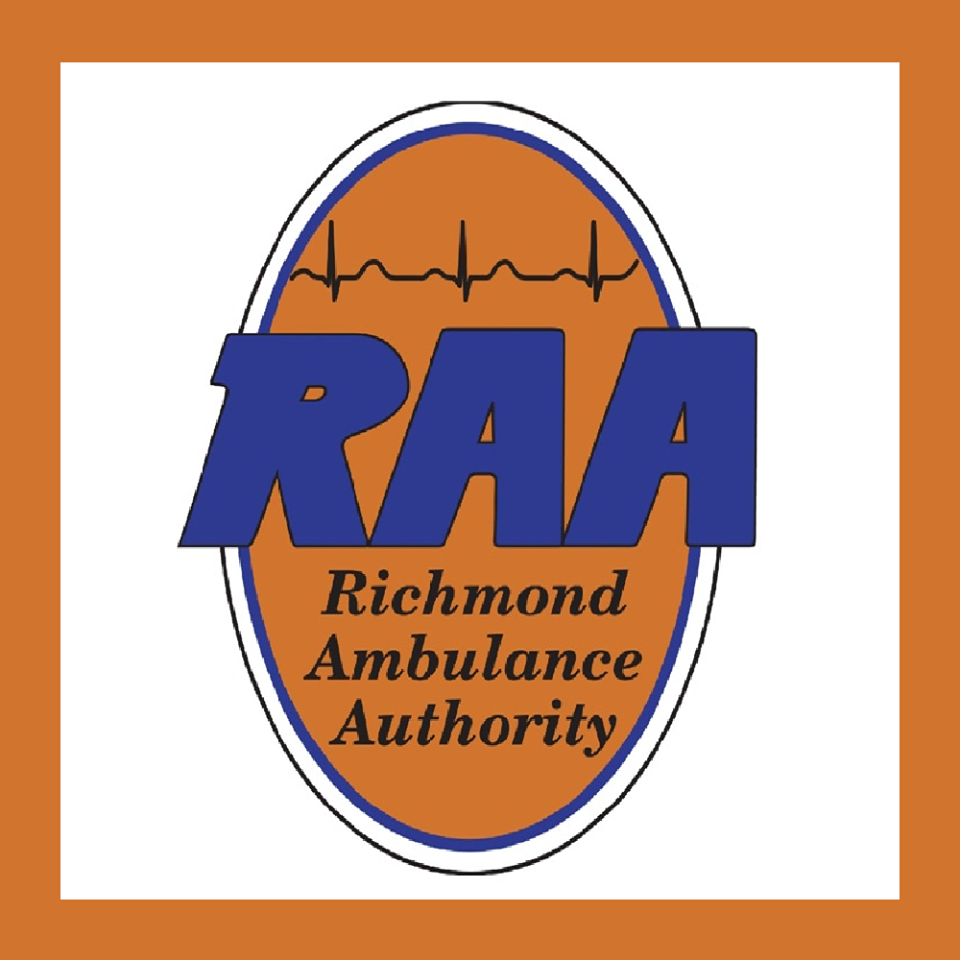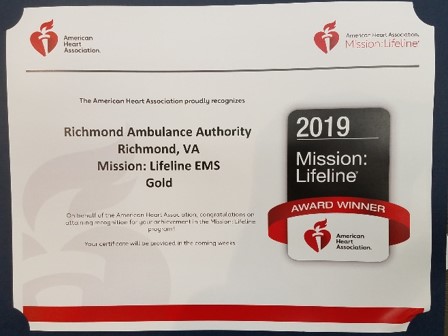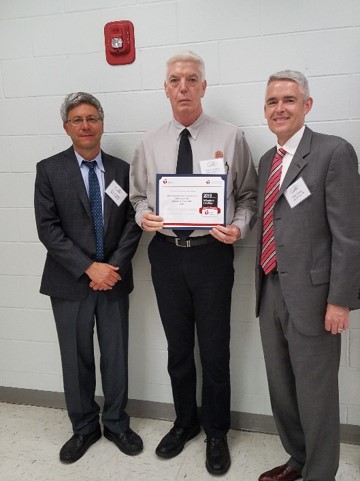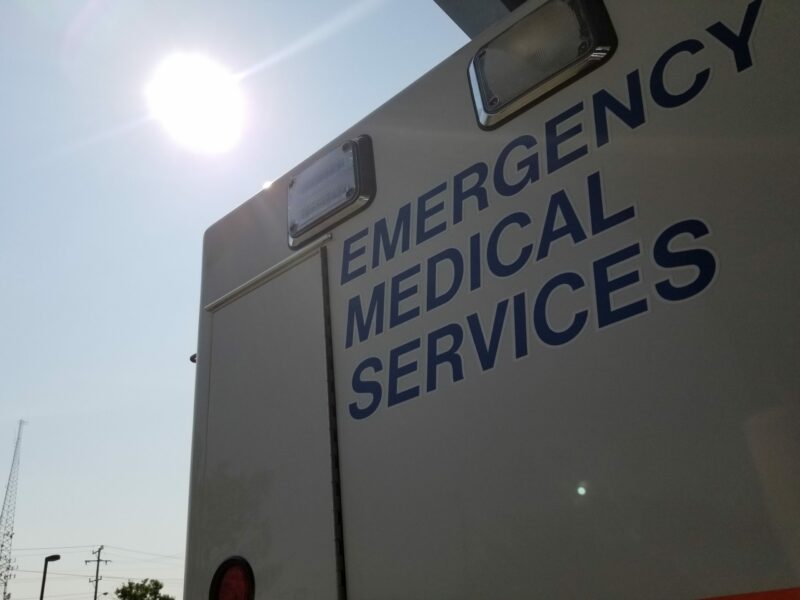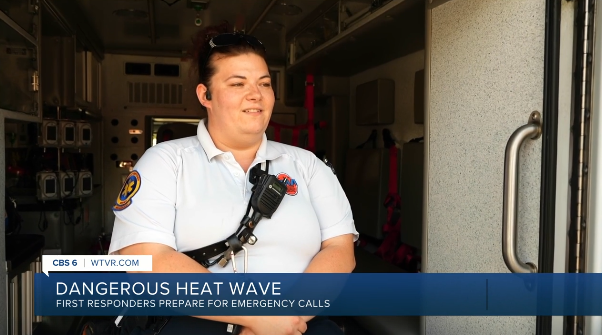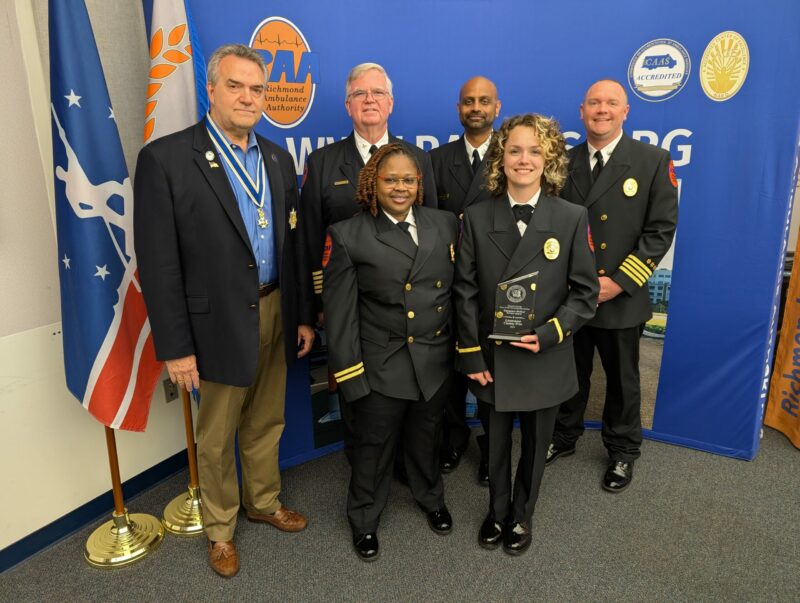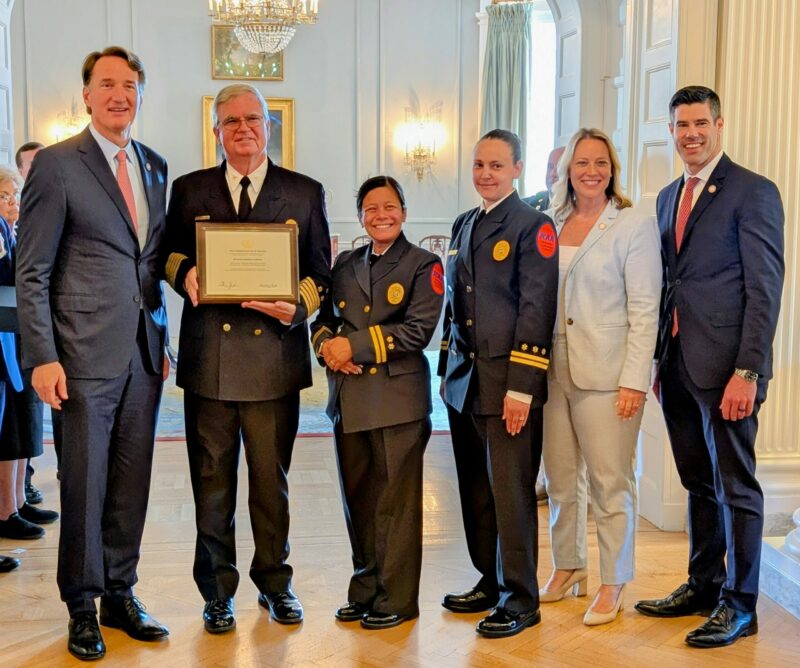On Friday, May 17th, the Richmond Ambulance Authority (RAA) was given the American Heart Association’s Mission: Lifeline EMS Gold Award. The program recognizes agencies for their outstanding performance in delivering evidence based treatment for people who have heart attacks.
EMS personnel are often the first medical providers to treat cardiac patients. They play a crucial role in the care of those patients and often help determine the course of a patient’s outcome. The Mission: Lifeline EMS recognition program was launched in 2014 and continues to celebrate the achievement of the pre-hospital providers and their collaboration with each other and destination hospitals specific to STEMI patient care.
Every year, more than 250,000 people experience an ST elevation myocardial infarction (STEMI), the deadliest type of heart attack, caused by a blockage of blood flow to the heart that requires timely treatment. To prevent death, it’s critical to restore blood flow as quickly as possible, either by mechanically opening the blocked vessel or by providing clot-busting medication.
The American Heart Association’s Mission: Lifeline program’s goal is to reduce system barriers to prompt treatment for heart attacks, beginning with the 9-1-1 call, to EMS transport and continuing through hospital treatment and discharge. The initiative provides tools, training and other resources to support heart attack care following protocols from the most recent evidence-based treatment guidelines.
RAA earned the award by meeting specific criteria and standards of performance for quick and appropriate treatment through emergency procedures to re-establish blood flow to blocked arteries in heart attack patients coming into the hospital directly or by transfer from another facility.
About Mission: Lifeline
The American Heart Association’s Mission: Lifeline program helps hospitals and emergency medical services develop systems of care that follow proven standards and procedures for STEMI patients. The program works by mobilizing teams across the continuum of care to implement American Heart Association/American College of Cardiology Foundation clinical treatment guidelines. For more information, visit heart.org.
